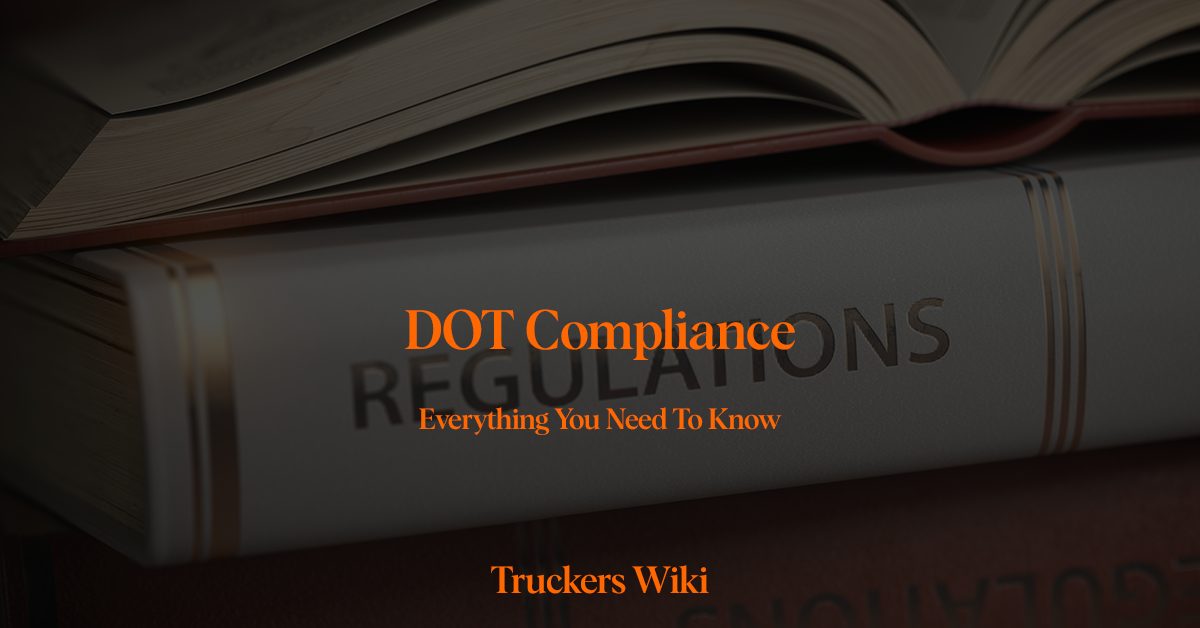
Table of Contents
What is DOT Compliance?
DOT compliance involves fulfilling the obligations set forth by the DOT and its sub-agency, the Federal Motor Carrier Safety Administration (FMCSA). These regulations are designed to ensure the safety of both truck drivers and the public by setting standards for operational aspects such as driver qualification, hours of service, vehicle maintenance, and cargo handling.
Key Components of DOT Compliance
Several key components of DOT compliance for the trucking industry include:
Driver Qualification: This includes a range of requirements that a driver must meet to be eligible to operate a commercial vehicle, such as holding a valid Commercial Driver’s License (CDL), passing a DOT physical examination, and demonstrating safe driving skills and knowledge.
Hours of Service (HOS): These regulations limit the number of hours a driver can work to prevent fatigue-related accidents. They include rules for driving time, required breaks, and mandatory rest periods.
Vehicle Maintenance and Inspection: The DOT requires regular maintenance and inspection of commercial vehicles to ensure they are safe for operation. Detailed records of these inspections and any maintenance performed must be kept.
Transportation of Hazardous Materials: If a trucking company transports hazardous materials, additional regulations apply to ensure these materials are handled and transported safely.
Alcohol and Drug Testing: The DOT mandates regular and random drug and alcohol testing for commercial drivers to ensure they are not operating vehicles under the influence.
Importance of DOT Compliance
Compliance with DOT regulations is crucial for a number of reasons:
Safety: DOT regulations are designed primarily to ensure the safety of truck drivers and the public. Complying with these rules helps reduce the risk of accidents.
Legal Requirement: Failure to comply with DOT regulations can result in penalties including fines, lowered safety ratings, or even suspension of a company’s operating authority.
Efficiency and Reputation: A strong record of DOT compliance can boost a company’s reputation within the industry and with customers, potentially leading to more business opportunities.
Conclusion
DOT compliance is a critical aspect of operations in the trucking industry. It involves adhering to a wide range of safety regulations and standards that aim to protect both drivers and the public. Understanding and maintaining DOT compliance is an essential responsibility for all commercial drivers and trucking companies.
Listen to The Article Here
Audio Article DOT Compliance Everything you need to know
Last modified: August 20, 2023

